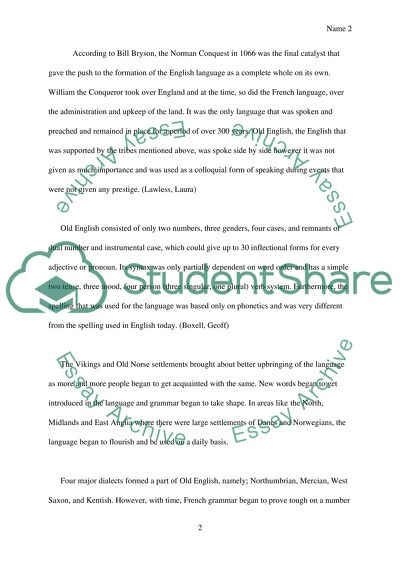Cite this document
(“Discuss the impact of French upon the English language over the five Essay - 1”, n.d.)
Retrieved from https://studentshare.org/literature/1582301-discuss-the-impact-of-french-upon-the-english-language-over-the-five-hundred-years-after-1066
Retrieved from https://studentshare.org/literature/1582301-discuss-the-impact-of-french-upon-the-english-language-over-the-five-hundred-years-after-1066
(Discuss the Impact of French Upon the English Language over the Five Essay - 1)
https://studentshare.org/literature/1582301-discuss-the-impact-of-french-upon-the-english-language-over-the-five-hundred-years-after-1066.
https://studentshare.org/literature/1582301-discuss-the-impact-of-french-upon-the-english-language-over-the-five-hundred-years-after-1066.
“Discuss the Impact of French Upon the English Language over the Five Essay - 1”, n.d. https://studentshare.org/literature/1582301-discuss-the-impact-of-french-upon-the-english-language-over-the-five-hundred-years-after-1066.


